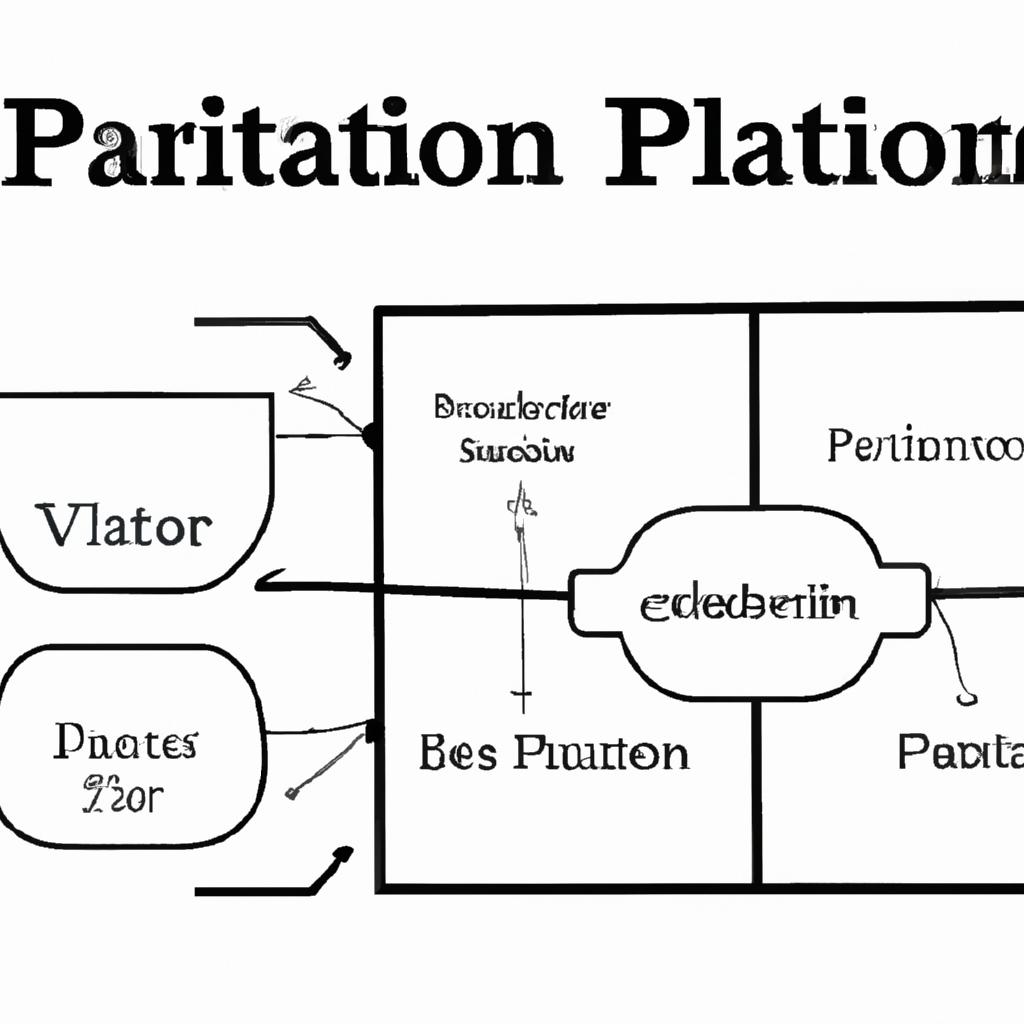In the intricate realm of real estate law, one term that often arises is the elusive “partition suit.” But what exactly does this term entail, and how does it impact the ownership of property? As experienced attorneys at Morgan Legal Group in New York City, we specialize in navigating the complexities of real estate transactions, including partition suits. Join us as we delve into the intricacies of this legal process and shed light on what it means for property owners.
Understanding the Legal Basis of a Partition Suit in Real Estate
In real estate law, a partition suit is a legal action brought to divide a property owned by multiple parties. This may be necessary when co-owners cannot agree on how to use or manage the property, leading to disputes that cannot be resolved amicably. A partition suit seeks a court order to physically divide the property or, if division is not feasible, to force a sale of the property so that the proceeds can be divided among the co-owners.
- ** Types of Partition Suit: **
- Partition in Kind
- Partition by Sale
- ** Legal Requirements for a Partition Suit: **
- Ownership Interest in the Property
- Conflict Among Co-owners
- Filing of Lawsuit in the Proper Jurisdiction
Partition suits can be complex legal proceedings that require the expertise of experienced real estate attorneys to navigate successfully. At Morgan Legal Group, our team of skilled lawyers has a deep understanding of the legal principles governing partition suits and can provide comprehensive representation to clients involved in property disputes. We work diligently to protect our clients’ rights and interests throughout the partition process, whether through negotiation, mediation, or litigation in court.
| Pros of Partition Suit | Cons of Partition Suit |
|---|---|
| Facilitates division of property among co-owners | Can be time-consuming and expensive |
| Resolution of disputes through legal process | Potential strain on relationships among co-owners |

Exploring the Process of Initiating a Partition Suit
When it comes to real estate, a partition suit is a legal action taken when co-owners of a property cannot agree on how to divide or sell the property. This process can often be complex and contentious, requiring the expertise of a skilled real estate attorney to navigate the legal waters.
During a partition suit, the court will typically determine the fair market value of the property, appoint a referee to oversee the sale or division of the property, and resolve any disputes between the co-owners. It is important to note that each state has specific laws governing partition suits, so it is crucial to consult with a knowledgeable attorney to ensure the best possible outcome.

Analyzing the Implications and Outcomes of a Partition Suit
In a real estate context, a partition suit is a legal action initiated to divide or sell a property that is jointly owned by multiple parties who cannot come to an agreement on how to use or divide the property. The implications of a partition suit can be significant, as it involves forcing a resolution to what can often be a contentious and emotionally charged situation. By understanding the outcomes and consequences of a partition suit, individuals involved in real estate matters can make more informed decisions about how to proceed.
During a partition suit, the court will typically appoint a referee to oversee the process of dividing or selling the property. This referee will determine the most equitable way to divide the property, taking into account factors such as the value of the property, any improvements made to it, and the desires of the co-owners. It is important for individuals involved in a partition suit to be aware of their rights and responsibilities throughout the process, as well as the potential costs and timeline associated with resolving the dispute. By working with experienced legal professionals who understand the complexities of real estate law, parties involved in a partition suit can navigate the process more effectively and achieve a fair and equitable resolution.

Key Considerations for Success in a Partition Suit in Real Estate
When navigating a partition suit in real estate, there are several key considerations that can help contribute to a successful outcome. One important factor to keep in mind is the specific laws and regulations that govern partition suits in the jurisdiction where the property is located. Understanding the legal framework surrounding partition suits can help ensure that your case is structured in a way that maximizes your chances of success.
Additionally, it’s crucial to carefully assess the potential financial implications of pursuing a partition suit. This includes considering the costs associated with legal representation, court fees, and any potential lost revenue from the property during the litigation process. By conducting a thorough financial analysis and developing a strategic plan, you can position yourself for success in a partition suit.
Q&A
Q: What is a partition suit in real estate?
A: A partition suit in real estate is a legal action filed by a co-owner of a property to force the sale of that property or to divide it among the co-owners.
Q: When is a partition suit usually filed?
A: A partition suit is typically filed when co-owners cannot agree on the use or ownership of a property, leading to disputes and conflicts.
Q: How does a partition suit work?
A: In a partition suit, the court will decide whether to physically divide the property among the co-owners or to order the sale of the property and divide the proceeds.
Q: What are the reasons for filing a partition suit?
A: Reasons for filing a partition suit may include co-owners disagreeing on property usage, maintenance, or financial responsibilities, as well as an inability to come to a mutual agreement on how to divide the property.
Q: How does a partition suit affect the value of the property?
A: A partition suit can potentially lower the value of the property due to legal fees, court costs, and the need for a quick sale, which may result in a lower selling price.
Q: Can a partition suit be avoided?
A: A partition suit can be avoided through proactive communication and cooperation among co-owners, establishing clear ownership agreements, and seeking legal advice to navigate any disputes that may arise.
The Way Forward
In conclusion, understanding the concept of a partition suit in real estate is essential for anyone navigating issues of co-ownership or property disputes. By knowing your rights and options, you can better protect your interests and ensure a fair resolution to any conflicts that may arise. Whether you find yourself in need of legal intervention or mediation, being informed and proactive is key to successfully navigating the complexities of real estate ownership. Remember, knowledge is power, and in the world of real estate, it can make all the difference.
 What Is a Partition Suit in Real Estate: Explained
What Is a Partition Suit in Real Estate: Explained
In the world of real estate, there are many legal terms and procedures that can be confusing for both buyers and sellers. One such term is a partition suit, which is a common occurrence in real estate disputes. Whether you are a homeowner looking to avoid a partition suit or a real estate professional wanting to understand the process better, this article will provide a comprehensive explanation of what a partition suit is and its significance in real estate.
A partition suit, also known as a partition action, is a legal process that allows co-owners of a property to divide or sell their jointly owned property when they cannot agree on how to divide it. It involves filing a lawsuit in court to ask for a court-ordered sale or division of the property. Partition suits usually occur when one or more co-owners want to sell their share of a property, but others do not.
Let’s dig deeper into the details of a partition suit in real estate and understand its purpose, process, and significance.
What Is the Purpose of a Partition Suit?
The primary purpose of a partition suit is to resolve disputes between co-owners regarding their jointly owned property. In many cases, this may happen when one of the co-owners wants to sell their share of the property, but others do not agree to it. This can lead to a stalemate situation where neither party can move forward, and the property remains undivided.
In other cases, the co-owners may have inherited the property and do not want to continue owning it together. A partition suit allows them to divide or sell the property and dissolve their joint ownership.
The Process of a Partition Suit
The process of a partition suit begins with one or more co-owners filing a lawsuit in court. This action is known as “filing a complaint.” The complaint usually outlines the details of the dispute, the co-owners involved, and the requested relief (either a partition or sale of the property). The complainant(s) must also provide evidence to support their claims.
Once the complaint is filed, the other co-owners have a certain period (typically 20-30 days) to respond to the complaint. If they do not respond within the given time frame, the court may proceed with the case and issue a judgment.
If the other co-owners respond to the complaint, the court may schedule a hearing or mediation to try and reach an agreement. If an agreement cannot be reached, the court will typically appoint a trustee to oversee the partition or sale of the property.
The trustee’s role is to ensure that the property is sold or divided fairly and that all co-owners receive their rightful share of the proceeds. The trustee also handles the administrative tasks related to the sale, such as conducting property appraisals, listing the property for sale, and distributing the proceeds to the co-owners.
The Significance of a Partition Suit
One may wonder why a partition suit is necessary when involved parties can negotiate and come to a mutual agreement. While this may be the ideal scenario, it is not always possible. In some cases, co-owners may not see eye to eye or may not have an amicable relationship, making it challenging to reach an agreement.
A partition suit provides a legal framework for resolving such disputes and allows a neutral third party (the court) to oversee the process fairly. It also ensures that all co-owners receive their rightful share of the property, mitigating the risk of any future legal claims.
Benefits and Practical Tips in Avoiding a Partition Suit
Now that we understand the purpose and process of a partition suit let’s explore some practical tips to avoid finding ourselves in this situation.
1. Be Clear on Co-Ownership Arrangements: It is essential to establish clear co-ownership agreements before purchasing or inheriting a property. This includes defining each co-owner’s responsibilities, rights, and the process for resolving any disputes.
2. Communicate Effectively: In case disagreements arise between co-owners, it is crucial to communicate clearly and effectively to try and reach a resolution without involving legal entities.
3. Consider a Buyout Agreement: In some cases, one co-owner may want to buy out the other(s) and become the sole owner of the property. In such cases, a buyout agreement can outline the terms of the buyout and prevent the need for a partition suit.
Conclusion
A partition suit is a legal process that allows co-owners of a property to divide or sell their jointly owned property when they cannot agree on how to divide it. The purpose of a partition suit is to resolve disputes between co-owners, typically due to one party wanting to sell their share of the property. The process involves filing a lawsuit, appointing a trustee, and ultimately selling or dividing the property. While a partition suit may seem like a complex and lengthy process, it provides a fair and legal solution for resolving disputes between co-owners.

